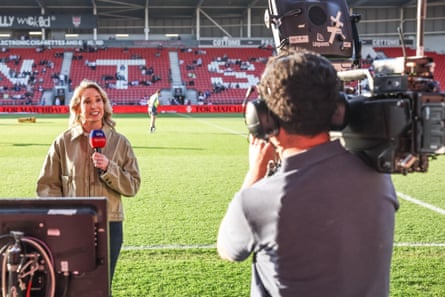Do you know anyone who thinks expanding Super League to 14 clubs next season is a good idea, beyond the people who voted for it and the Championship clubs with hopes of promotion? Me neither. When almost no one thinks something is the right thing to do, it almost certainly isn’t. But why have nine successful businessmen made such a controversial decision? Let’s analyse the widespread objections to the idea and play devil’s advocate to see if there are valid reasons for making a change.
There aren’t even 12 good teams
Clubs and Super League management have had enough of shambolic Salford and want them out. If Toulouse were simply to replace them in a 12-team top flight next season, some clubs would play home games against French clubs (with their handful of away fans) and others would have to travel to France three times. That would not be popular either.
Expanding the league to 14 teams means Toulouse can join, loop fixtures can be removed, and two more major markets are added. Toulouse and Bradford appear to be 12th and 13th on IMG gradings. They are averaging crowds of more than 3,000 and could double that in the top flight. Both cities have populations of more than 500,000 and the clubs would both bring major commercial backing.
York and Oldham only draw 4,000 fans between them in the Championship but both have more than 200,000 local residents, plus wealthy backers and suitable stadiums, so have the potential to “do a Leigh”. London Broncos, whose underfunded team are ranked 22nd and play to low three-figure crowds in Wimbledon, would be a gamble: but the one with the biggest winnings if it came off.
Expanding next year is too soon
Only the club owners seem to disagree with that, although at least two did vote for expansion to wait until 2027. “Three-quarters of the league concluded we should grasp the nettle and voted for change as quickly as possible,” said the RFL Senior Executive Director and RL Commercial chair Nigel Wood, who personally thought 2027 was more sensible. “Even under the current grading system we could have multiple clubs suddenly having to move leagues at short notice.”
With the decision due in October, the two or three promoted clubs will have only three months to prepare, which should guarantee they finish below 11 established clubs, a win-win scenario for self-centred owners.
Bradford and London will be cherry-picked
Not necessarily. Much of the dismay was based on the assumption that two additional teams, selected by a supposedly independent panel, would be based on unspecified criteria. The assumption that Nigel Wood’s Bradford Bulls and Gary Hetherington’s London Broncos would happen to fit those criteria was understandable. Wood has now clarified the decision would be based on the grading system but the panel will “stress-test” each applicant’s financial strength.
“There has to be an enhanced scrutiny of the financial aspects of grading to find clubs with the sustainability to cope within the Super League, possibly with not a full distribution,” said Wood, reiterating the need to avoid a repeat of the Salford farce. If two expansion clubs have to cope with less than the full £1.3m central funding, that puts moneybags York – surprise Championship leaders – firmly in the picture.
Hetherington and Wood divide league fans into two camps: one that considers them cynical opportunists and the other that views them as clever entrepreneurs. They are probably both. Hetherington has an excellent track record with Leeds and, if he could repeat that in London, it would benefit the whole sport. And the majority of Super League clubs wanted Wood back in some capacity, maybe just not as king of the castle again.
Seven Yorkshire teams is hardly expansion
Replacing one northern town with another – Bradford for Salford – will have minimal national impact, but increasing Super League’s footprint seems wise. Toulouse and Bradford both have serious potential and buoyant clubs there could increase Super League’s attractiveness to external investors. Having started in seven markets, Super League has shrunk to just four: the addition of Toulouse and either London or York would take that back up to six. Oldham would make much of their Greater Manchester location, York their famous one.
Sky does not want a bigger competition
Sky has always implied it wants Super League to be whatever size Super League wants to be, but it is not clear what will happen to the seventh weekly fixture or who would pay the £500,000 a season for those games to be televised. It could be streamed or not broadcast: most viewers will hardly be fuming if they can’t watch Huddersfield v Leigh live from The Shay.
If Toulouse are in the top flight, they and Catalans could play home games every other Friday night. That would allow Sky to show a game at 6pm UK time and another at 8.15pm, forgoing the Thursday night slot that is increasingly supplanted by darts on Sky and up against European football on TNT. That arrangement may lure in beIN or L’Équipe to broadcast the seventh game. Voilà!
This is all because clubs hate loop fixtures
The Warrington CEO Karl Fitzpatrick says loop fixtures – where you play five teams three times and the other six only twice – are the “main issue in the game”. Nonsense. Granted, loop fixtures are neither fair nor lucrative, with reduced crowds for repeated fixtures. Wigan played at Hull FC twice in the opening nine weeks this season and St Helens played Salford three times before they faced Leigh. But they are also a red herring. If clubs felt that strongly they would have dumped them years ago, but they were unwilling to sacrifice two home games for a simple 22-game home and away schedule (plus Magic, or maybe not).
Outsiders don’t care that Warrington play Leigh three times, although the committed fan might rather see them play Bradford instead. But home games against Oldham, Toulouse or York are not going to generate vastly more matchday revenue or corporate interest than repeated home games. Most season ticket holders would not object to having two fewer home games as few go to every game anyway. As Wigan CEO Kris Radlinksi said, the big issue is increasing the size of the sport, not fiddling around with the schedule.
Magic Weekend makes the calendar unfair
True, if Magic is the 27th game. But rather than abandoning Magic, spice it up and make it work to solve a problem. Five clubs share their pitch with football clubs so have to vacate in summer for re-seeding, thus skewing the fixture list. Next year half of Super League clubs may be groundsharing with football clubs.
So make Magic a home game for those who can’t use their grounds, which would produce an equitable 26-game calendar and chop a week off the season. Don’t schedule any derbies at Magic but give the “home” clubs a greater share of the gate. Simple.
The promoted clubs will be terrible
Maybe, but teams have been out of their depth in previous Super League seasons, whether they have featured 10, 12 or 14 clubs. Expansion may see a glut of Palookaville Panthers, home of the mediocre and the incompetent, battling it out at the bottom. At least they might be well matched, although a relegation spot would make that much more interesting.
Promoted clubs can now recruit 10 overseas players so it’s by no means certain who will struggle. Three years ago Leigh came up and flew; this season Hull have gone from second bottom to playoff contenders in a few months. There is hope for (nearly) everyone.
Follow No Helmets Required on Facebook










